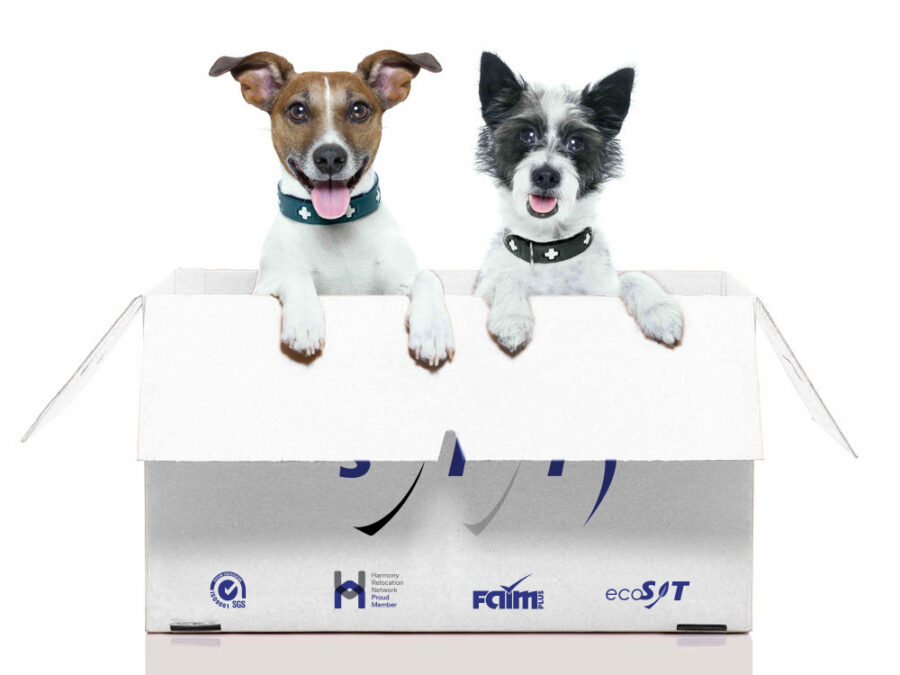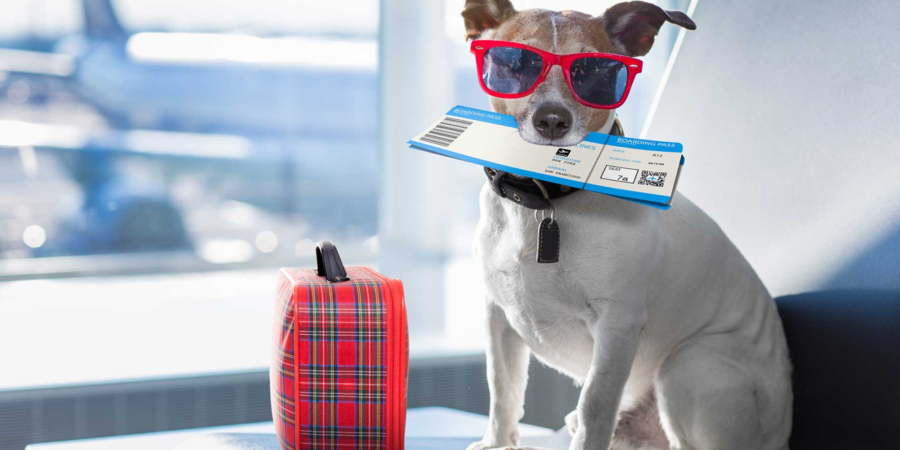
Moving abroad with your pet?
Moving abroad is a decision that requires a great deal of forethought and planning simply in terms of moving personal belongings, but when you add to that all the management involved in bringing pets with you, it can become even more complicated and stressful.
An international pet move is not something that can be planned at the last minute, as there are a number of necessary steps that need to be taken to ensure that your pet arrives safely and securely in its new home.
It’s an experience that can be a little overwhelming for both humans and animals, so if you do your research and plan well with your pet’s best interests in mind, you should be able to make it a little easier for both of you.
What should you consider?
Research your destination’s pet import laws
Some countries have stricter laws than others and it is essential that you do as much research as you can about the requirements needed to enter that new country.
Some countries do not allow certain types of animals and others only allow specific breeds, for example, New Zealand does not allow birds, reptiles (including snakes), mice and rats (unless they are laboratory animals), ferrets and other animals. If they are dogs, they do not allow American pit bull terriers, unless they are hearing or guide dogs.
You will also need to research the necessary vaccinations as almost all countries require at least a rabies vaccination. Whether or not it should be microchipped and what type, although it is almost compulsory to have a microchip. Find out whether there is a compulsory quarantine period or whether a health certificate is sufficient.
Depending on the country, there may be age restrictions, whether it is very small or very old. To obtain precise information, it is advisable to contact the consulate of the country of destination directly.

Essential vet appointment
As these are generally long flights when making such moves, it is best to make an appointment with your vet prior to the journey, as they will be able to tell you if your pet is suitable for such a long flight or if they need any anti-anxiety medication, as well as help you with some advice on how to prepare them for the big day.
Young, old, anxious and sick animals are not advised to travel in cargo.
Be sure to check with your vet that your pet is up to date with all its vaccinations and double check all the necessary requirements that will be required upon arrival in the new country.
Ask for a copy of his or her complete medical records and, if he or she has any prescription medication, get several months’ supply in case you do not immediately find a new vet at your destination.
On this last point, your vet will certainly be able to help you find a new one, and if he or she does not know anyone, he or she can recommend a professional organisation where you can go in the meantime.
Find out about pet relocation services
If the issue of moving your pet is beyond you, there are pet shipping and relocation services that can help. These companies can help you with everything from making sure you comply with all animal import regulations to arranging your pet’s travel. They can even escort you through customs and complete customs formalities and other paperwork.
Calculate deadlines
Just as humans are required to meet certain deadlines for all kinds of legal procedures, the same applies to animals.
Some countries require up to 6 months to complete the whole process and if you don’t start as soon as possible, your pet may have to travel once you are settled in your new home and this would not be an ideal situation.
Pay particular attention to the timetable as there may be different requirements at each stage.
Start the adjustment process with your pet a few months early, make them comfortable in their carrier, gradually add blankets and toys, and encourage them to explore with treats or food.
Have all documents in order
When it’s time to fly, make sure you have all required documents on hand. This includes documentation of your pet’s rabies vaccination or other vaccinations, a letter from your veterinarian authorising travel and other documentation requirements set by your airline and the country you are moving to.
Don’t forget to bring several copies in case any are lost during the move and that everything is signed or certified. If the airport sees any missing documentation, it could mean costly delays to your itinerary or worse, your pet being refused entry.
.

Conclusion:
Advance planning is the key to moving internationally with pets. Start as early as possible and be thorough so you know you’re not missing anything.
Veterinarians, pet relocation companies and the consulate or embassy of your new country are excellent resources and will be a great help in preparing you well for the experience.
Moving internationally with pets is a long and often stressful process, but having your pet with you will make it all worth it in the end.
Here are some other tips that you may find useful for your move with pets